Holy Thursday
Angel Mortel and her husband Chad Ribordy live in Brazil, where they served as lay missioners for many years.
From Cambodia to El Salvador, Bangladesh to Tanzania, Maryknoll missioners accompany people and communities affected by poverty and extreme poverty.
Based on our belief that each person is both sacred and social, created in God’s image, and destined to share in the goods of the Earth as part of a community of justice and mercy, we hear the cry of the poor and we are called to respond. From the time of the Old Testament to today, we recognize poverty as a common result of unjust oppression of those forced to live on the margins, prohibited from participating in society. We listen to our suffering brothers and sisters and we hear echoes of God’s frequent warnings to the Israelites in the Book of Exodus, of their duty to care for those who are poor, powerless, and excluded by society.
Embracing this duty, we advocate for social and economic change, to eliminate the roots causes of poverty found in unjust economic structures. We promote the globalization of solidarity, the enhancement of inclusive human security, and development that is rooted in social justice and ecological sustainability.
Maryknoll Leadership Statement: Trading in justice: The local impact of global economic decisions
WEBINAR: U.S. Trade Policy – Putting People and Planet First
PRAYER: Virtual Good Friday Way of the Cross for Economic and Ecological Justice
POLICY BRIEF: End the Pandemic Through Global Vaccine Access
SPECIAL PROGRAM: Integral Ecology Program
NEWSLETTER: Encounters Where Faith, Economy, Ecology Meet
PRESS STATEMENT: Faith communities call for a new trade model

Angel Mortel and her husband Chad Ribordy live in Brazil, where they served as lay missioners for many years.

Shareholder advocacy calling on corporations to be accountable for their GHG emissions and to take steps to address climate change continues.
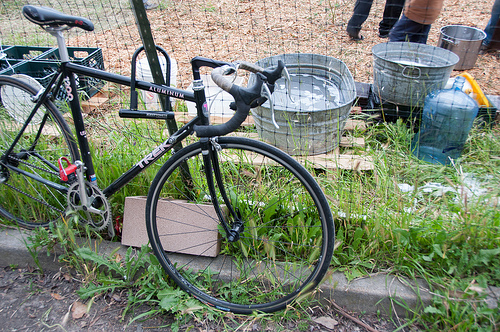
To adequately address the climate crisis, a vast global mobilization is needed to urgently and radically reduce greenhouse gas emissions.
Join this year’s Economic and Ecological Way of the Cross as it moves through Washington, D.C. on Good Friday, April 3.

These policy goals are endorsed by 23 faith-based organizations and have been sent to the White House, USAID and the State Department.
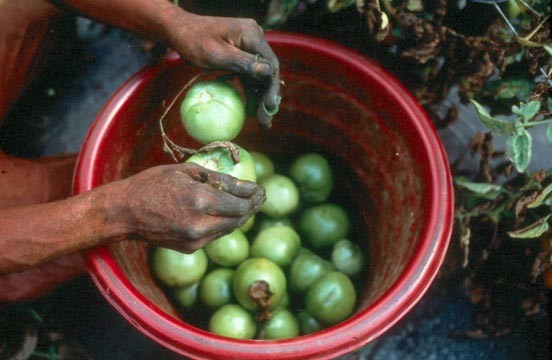
From our colleagues at Pax Christi USA who received it from Interfaith Action of Southwest Florida.
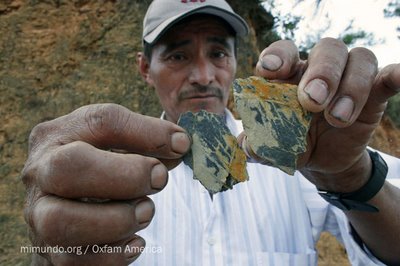
The National Coalition of Environmental Networks in Honduras is calling for urgent solidarity TODAY in order to try to halt the final debate on a mining law that does not incorporate their proposals
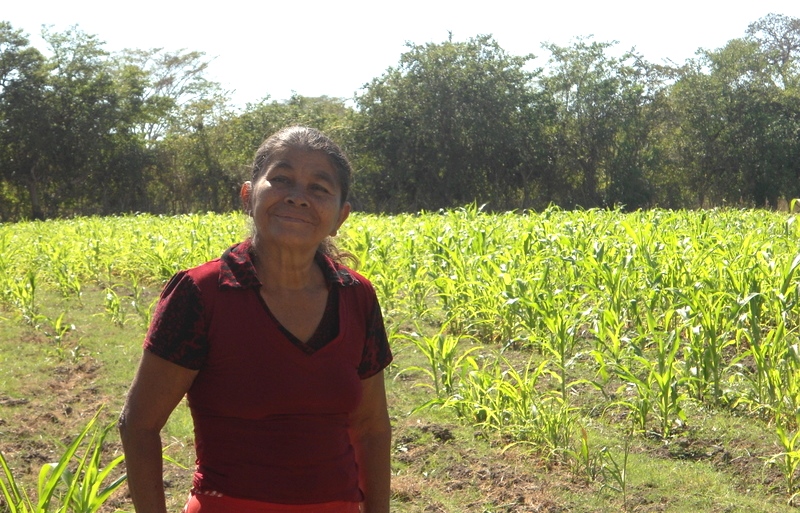
Debbie Northern worked in El Salvador for eight years as a Maryknoll lay missioner. She now works as the training and education programs manager for the Maryknoll Lay Missioners.
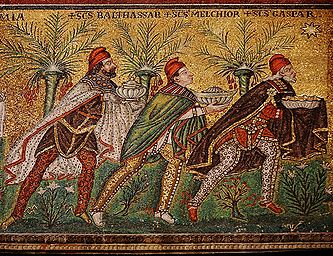
A financial transaction tax is one way that lawmakers could solve the dilemma of how to raise revenues to serve the common good, perhaps following the example of another cast of characters at the nativity scene: the three wise men.

This prayer of thanksgiving is written by Jane Deren, senior advisor for the Center of Concern’s Education for Justice project.

The following alert is circulated by the Guatemala Human Rights Commission (GHRC).

On October 3, the Hershey Company announced that by 2020, all of the cocoa it sources will be independently certified, according to a press statement, “to assure that it is grown in line with the highest internationally recognized standards for labor, environmental and better farming practices.”

In early September countries involved in the Trans-Pacific Partnership (TPP) negotiations resumed their 14th round of negotiations in Leesburg, VA. Though lip-service was given to transparency by the inclusion of stakeholder engagement, the meeting proceeded with the kind of secrecy that shrouds most trade negotiations. The following article was published in the November-December 2012 NewsNotes.

This slim volume contains lovely, thought-provoking reflections from missioners who have spent years living with impoverished and marginalized communities around the world.
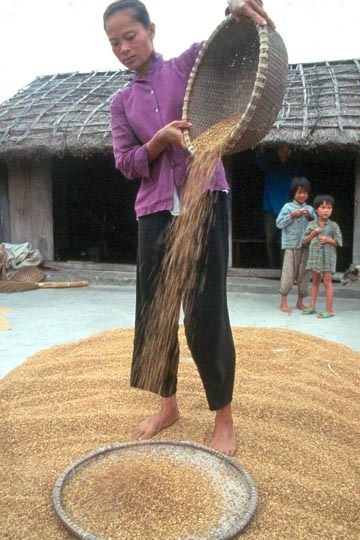
The following is taken from a press release from the Right to Food and Nutrition Watch Consortium.
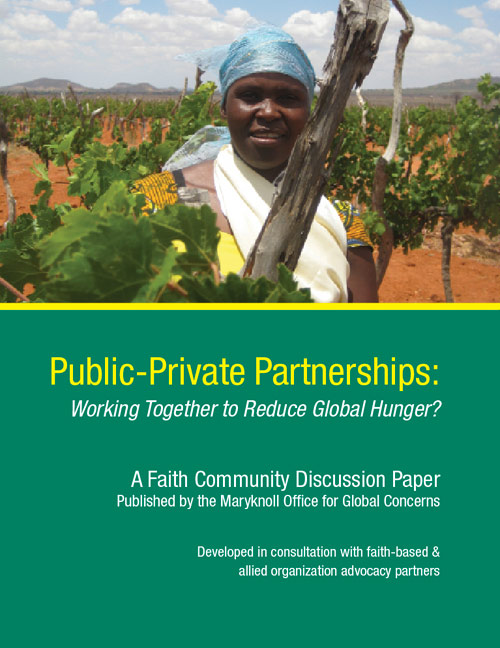
This discussion paper highlights the principles outlined by faith groups and allied organizations that give public-private partnerships the best chance of success, while detailing the historical trends that led to the New Alliance announcement in May 2012.
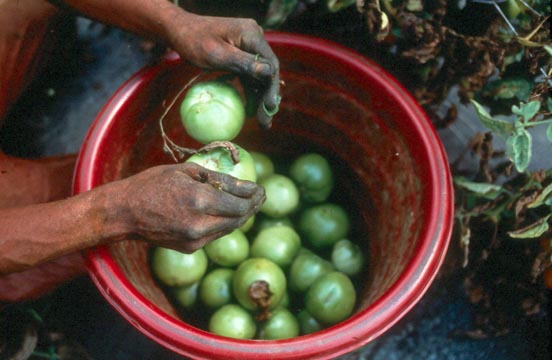
Maryknoll leadership approved the following statement on trade and investment in March 2002; it remains relevant today.